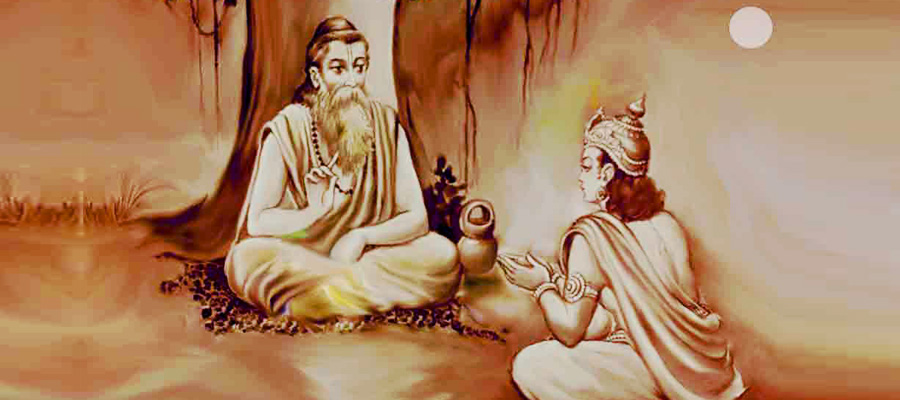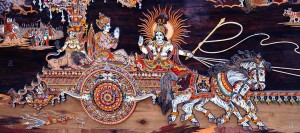The Upaniṣads as Philosophy
As noted above, many of the Upaniṣads are composite and fragmented, and therefore lacking a coherent philosophical position. Moreover, the teachers portrayed in the Upaniṣads do not seem to make linear arguments that start with premises and build to larger conclusions, but rather tend to make points through analogies and metaphors, with many core ideas presented as truths or insights known to particular teachers, not as logical propositions that can be independently verified. Nonetheless, in a number of sections of the texts, there appear to be implicit philosophical methods in place.. We have already noted that Yājñavalkya’s discussion of the self is based on a reflective introspection (see also MuU 3.1.8-9). The early Upaniṣads do not contain passages explicitly articulating method, but with the development of yoga and meditation in the later texts, introspection begins to be formalized as a philosophical mode of inquiry. Also, many of Uddālaka Āruṇi’s descriptions of ātman are derived from his observations of the natural world.
In addition to providing a repository of terms, concepts, and, to a certain degree, philosophical methods, from which subsequent philosophical schools would draw, the Upaniṣads were also influential in the development of the practice of debates, which would become the defining social practice of Indian philosophy. Although the texts do not discuss debate reflectively, a number of the most important teachings are articulated within the context of discussions between teachers and students, and verbal disputes among rival brahmins. In some dialogues, there is a dialectical relationship between the arguments of competing interlocutors, indicating that the dialogical presentation of teachings was a way of formulating philosophical rhetoric (Black 2015). In this way, debate is another way by which the Upaniṣads extend ideas first articulated in the context of the Vedic ritual into more philosophical discourse.
The Upaniṣads in the Modern Period
The Upaniṣads are some of the most well-known Indian sources outside of India. Their first known translation into a non-Indian language was initiated by the Mughal prince Dārā Shūkōh, son of the emperor Shah Jahan. This Persian translation, known as the Sirr-i Akbar (the Great Secret), consisted of fifty texts, including the Vedic upaniṣads, many of the yoga, renunciate, and devotional upaniṣads, as well as other texts, such as the Puruṣa Sūkta hymn of the Ṛgveda and some material from unidentified sources. Dārā Shūkōh considered the Upaniṣads to be the sources of Indian monotheism and he was convinced that the Koran itself referred to the Upaniṣads.
Henry Thomas Colebrooke’s translation of the Aitareya Upaniṣads in 1805 was the first rendering of an upaniṣad into English. Rammohan Roy subsequently translated the Kena, Īśā, Kāṭha, and Muṇḍaka Upaniṣads into English, while his Bengali translation of the Kena Upaniṣad in 1816 was the first rendering of an upaniṣad into a modern Indian language.
Roy used the introductions of his translations into both Bengali and English to promote the reformation of Hinduism, endorsing the values of reason and religious tolerance, while criticizing practices such as idolatry and caste hierarchy. Roy felt that contemporary religion in India was in decline and hoped that his translations could provide Hindus with direct access to what he considered to be the true doctrines of Hinduism. The Upaniṣads first reached Europe in the modern period through the French philologist Abraham Hyacinthe Anquetil-Dupperon’s translation of the Sirr-i Akbar into Latin, which was published in 1804. It was Anquetil-Dupperon’s text, known as the Oupnek’hat. which was read by the German philosopher Arthur Schopenhauer, the first major European thinker to engage explicitly with Indian sources. Schopenhauer considered the Upaniṣads, Plato, and Kant to be the three major influences on his work and is known to have kept a copy of Anquetil-Dupperon’s translation by his bedside table, reflecting that the Upaniṣads were his consolation in life and would equally be his consolation in death.





